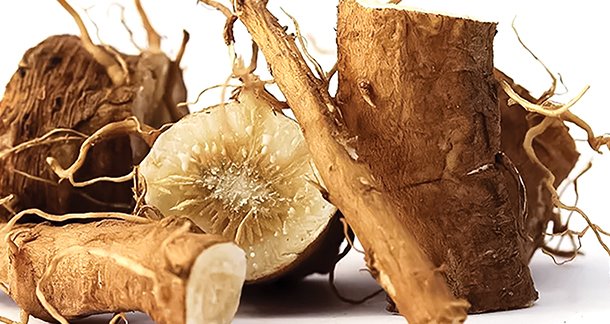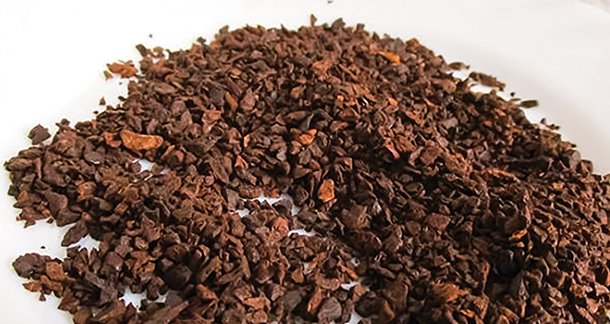Abstract
Chicory root, a caffeine-free alternative to coffee, is gaining popularity for its health benefits and functional properties. This article explores the processing of chicory root into a coffee-like brew, detailing its nutritional profile, production methods, and functional value. With rising demand for caffeine alternatives, chicory stands out as a sustainable and health-forward option for consumers worldwide.
Introduction
For centuries, coffee has been the world’s go-to beverage for energy and alertness. However, the rising awareness of caffeine-related health concerns such as insomnia, anxiety, and gastrointestinal issues has encouraged a search for natural, caffeine-free alternatives. Chicory root (Cichorium intybus), often used as a traditional remedy, has emerged as a viable and functional substitute. Known for its earthy flavour and prebiotic properties, chicory can be processed into a brew that mimics the taste and aroma of coffee without the stimulating effects of caffeine. This article delves into the processing techniques, functional attributes, and growing significance of chicory root as a modern beverage alternative.
Botanical and Nutritional Overview
Chicory is a woody, herbaceous plant belonging to the Asteraceae family. The root is rich in inulin, a prebiotic dietary fiber along with manganese, vitamin B6, potassium, and phenolic compounds. Its composition supports digestive health, blood sugar control, and gut microbiota balance. Unlike coffee beans, chicory root contains no caffeine, making it suitable for those with caffeine sensitivity or for individuals seeking a calming beverage option.

Processing of Chicory Root into a Brew
1. Harvesting and Cleaning: Chicory roots are typically harvested in autumn when inulin content is at its peak. The roots are then washed thoroughly to remove soil and impurities.
2. Slicing and Drying: The cleaned roots are sliced into small pieces to increase surface area, followed by drying at 50–60°C using tray or tunnel dryers. This reduces moisture content and enhances shelf life.
3. Roasting: Dried chicory pieces are roasted at temperatures between 150°C to 180°C. This critical step develops the characteristic dark colour, aroma, and bitter flavor similar to roasted coffee. Roasting also causes Maillard reactions, forming flavor compounds like furans and pyrazines.

4. Grinding: The roasted roots are ground to a fine or coarse powder, depending on the brewing method. This powder can be used alone or blended with other ingredients such as barley or coffee.
5. Packaging: The ground chicory is packed in moisture-proof, light-resistant packaging to preserve aroma and prevent oxidation.
6. Brewing: Chicory powder can be brewed in hot water using a French press, drip method, or boiled like traditional Indian filter coffee. It can also be combined with milk or plant-based alternatives for flavor enhancement.

Functional and Health Benefits
Chicory root brew offers a range of health-promoting properties, making it more than just a caffeine substitute. Rich in inulin, a prebiotic dietary fiber, chicory supports digestive health by promoting the growth of beneficial gut bacteria such as Bifidobacteria. This contributes to improved digestion, enhanced nutrient absorption, and a stronger immune response. Its low glycemic index and high inulin content also help regulate blood sugar levels, making it a suitable beverage for individuals managing diabetes. Additionally, chicory contains phenolic compounds that exhibit antioxidant and anti-inflammatory properties, which help combat oxidative stress and support overall well-being. While it lacks caffeine, the brew provides sustained energy by supporting gut health and metabolic function, offering a gentler, more balanced alternative to traditional coffee.

Applications and Market Trends
With the surge in demand for plant-based and functional beverages, chicory coffee has made its way into cafes, health stores, and e-commerce platforms. It is commonly sold as instant powder, filter coffee blends, or even cold brew alternatives. In countries like India, France, and the U.S., chicory-based beverages are gaining traction among health-conscious consumers. The use of chicory in combination with coffee is also popular, especially in South India, where it adds body and richness to the cup.
Conclusion
Chicory root serves as a promising caffeine-free alternative to traditional coffee, offering both sensory satisfaction and health benefits. Its processing from root to brew involves sustainable, natural techniques that retain nutritional value while enhancing flavor. As the global beverage market shifts towards functional and wellness-focused products, chicory coffee is well-positioned to meet consumer demands for health, taste, and innovation.
About
Samiksha Singh1 and Ruchi Verma2*
1 M.Sc Student
2* Assistant Professor
1,2Department of Food Processing and Technology,
Gautam Buddha University,Greater Noida (U.P)
*Corresponding author email: ruchiverma0715@gmail.com




I believe this site contains some real good information for everyone : D.
magnificent points altogether, you just gained a new reader. What would you recommend in regards to your post that you made a few days ago? Any positive?
I love the efforts you have put in this, thankyou for all the great articles.
Incredible! This blog looks just like my old one! It’s on a totally different subject but it has pretty much the same layout and design. Outstanding choice of colors!
Great tremendous things here. I am very satisfied to see your article. Thanks a lot and i’m looking forward to contact you. Will you please drop me a e-mail?
Rattling good info can be found on web site. “The greatest mistake is trying to be more agreeable than you can be.” by Walter Bagehot.
I just like the helpful info you provide to your articles. I’ll bookmark your blog and test again right here regularly. I am quite certain I’ll learn many new stuff proper right here! Good luck for the next!
I went over this web site and I conceive you have a lot of fantastic info, saved to fav (:.
This is very interesting, You are an excessively professional blogger. I have joined your rss feed and sit up for in quest of extra of your wonderful post. Also, I have shared your site in my social networks!
I?¦ve been exploring for a little bit for any high quality articles or blog posts on this sort of house . Exploring in Yahoo I ultimately stumbled upon this site. Studying this information So i?¦m glad to convey that I have an incredibly just right uncanny feeling I discovered just what I needed. I most indubitably will make sure to don?¦t forget this site and provides it a glance regularly.
Just wanna comment that you have a very nice internet site, I like the style it actually stands out.
Thank you for the sensible critique. Me & my neighbor were just preparing to do a little research on this. We got a grab a book from our local library but I think I learned more clear from this post. I am very glad to see such wonderful info being shared freely out there.
The very root of your writing while appearing reasonable at first, did not really work well with me personally after some time. Somewhere within the sentences you were able to make me a believer but just for a short while. I nevertheless have a problem with your leaps in assumptions and one would do nicely to help fill in all those gaps. In the event you actually can accomplish that, I would definitely end up being amazed.
Hey very cool site!! Man .. Beautiful .. Superb .. I will bookmark your web site and take the feeds also?KI am happy to seek out so many useful information right here within the put up, we need develop more techniques in this regard, thanks for sharing. . . . . .
I’ve been absent for some time, but now I remember why I used to love this site. Thanks , I will try and check back more frequently. How frequently you update your site?
Hello would you mind sharing which blog platform you’re using? I’m looking to start my own blog soon but I’m having a tough time making a decision between BlogEngine/Wordpress/B2evolution and Drupal. The reason I ask is because your design seems different then most blogs and I’m looking for something completely unique. P.S Sorry for being off-topic but I had to ask!
Hello! I know this is kinda off topic nevertheless I’d figured I’d ask. Would you be interested in exchanging links or maybe guest writing a blog article or vice-versa? My website addresses a lot of the same subjects as yours and I think we could greatly benefit from each other. If you are interested feel free to shoot me an email. I look forward to hearing from you! Terrific blog by the way!
Everything is very open and very clear explanation of issues. was truly information. Your website is very useful. Thanks for sharing.
Great wordpress blog here.. It’s hard to find quality writing like yours these days. I really appreciate people like you! take care
My brother suggested I might like this blog. He was entirely right. This post truly made my day. You cann’t imagine simply how much time I had spent for this information! Thanks!
It’s hard to find knowledgeable people on this topic, but you sound like you know what you’re talking about! Thanks
I will immediately take hold of your rss feed as I can not find your email subscription hyperlink or newsletter service. Do you’ve any? Please allow me realize so that I may subscribe. Thanks.
Thank you for sharing excellent informations. Your web-site is so cool. I am impressed by the details that you’ve on this website. It reveals how nicely you perceive this subject. Bookmarked this web page, will come back for more articles. You, my pal, ROCK! I found simply the info I already searched all over the place and just couldn’t come across. What an ideal web-site.
whoah this blog is magnificent i really like reading your posts. Stay up the great work! You realize, lots of persons are hunting round for this information, you could help them greatly.
Good write-up, I?¦m regular visitor of one?¦s site, maintain up the excellent operate, and It is going to be a regular visitor for a long time.
It’s a shame you don’t have a donate button! I’d most certainly donate to this brilliant blog! I suppose for now i’ll settle for bookmarking and adding your RSS feed to my Google account. I look forward to brand new updates and will share this website with my Facebook group. Chat soon!
Dead pent subject matter, Really enjoyed studying.
A lot of of what you articulate is astonishingly legitimate and that makes me wonder the reason why I had not looked at this in this light before. Your piece truly did switch the light on for me personally as far as this topic goes. However at this time there is actually one particular point I am not really too comfortable with and while I make an effort to reconcile that with the main theme of your position, allow me observe exactly what the rest of your visitors have to say.Nicely done.
When I originally commented I clicked the “Notify me when new comments are added” checkbox and now each time a comment is added I get several e-mails with the same comment. Is there any way you can remove me from that service? Thank you!
Simply wanna comment on few general things, The website pattern is perfect, the written content is really good : D.
I carry on listening to the rumor lecture about getting free online grant applications so I have been looking around for the top site to get one. Could you advise me please, where could i get some?
Some truly nice and useful information on this website, likewise I conceive the pattern contains superb features.
My spouse and i have been really satisfied that Edward managed to finish off his analysis from your ideas he made through your weblog. It is now and again perplexing just to be giving out secrets which often other people have been making money from. We do understand we now have the blog owner to thank for this. These explanations you have made, the easy site navigation, the friendships you assist to instill – it’s got everything astonishing, and it is helping our son in addition to the family understand that matter is satisfying, which is especially mandatory. Many thanks for everything!
I like this blog so much, saved to bookmarks. “Respect for the fragility and importance of an individual life is still the mark of an educated man.” by Norman Cousins.
Today, while I was at work, my sister stole my iPad and tested to see if it can survive a thirty foot drop, just so she can be a youtube sensation. My apple ipad is now destroyed and she has 83 views. I know this is completely off topic but I had to share it with someone!
Woh I like your blog posts, bookmarked! .
I together with my guys have been analyzing the nice guides found on your website then all of a sudden I had a terrible feeling I never thanked the web blog owner for those techniques. My young boys became absolutely thrilled to read them and have now in reality been tapping into them. I appreciate you for turning out to be really thoughtful and then for selecting varieties of nice guides millions of individuals are really desirous to understand about. My sincere apologies for not expressing gratitude to sooner.
I like this web site so much, saved to fav.
It is really a nice and useful piece of info. I’m glad that you shared this helpful info with us. Please keep us up to date like this. Thank you for sharing.
This really answered my problem, thank you!
Some genuinely prime content on this website , saved to favorites.
Pretty! This was a really wonderful post. Thank you for your provided information.
Hi, i feel that i noticed you visited my site thus i came to “go back the choose”.I’m trying to to find issues to enhance my site!I suppose its good enough to use a few of your ideas!!
You are my intake, I own few blogs and sometimes run out from post :). “Truth springs from argument amongst friends.” by David Hume.
fantastic post, very informative. I wonder why the other experts of this sector do not notice this. You must continue your writing. I am sure, you’ve a huge readers’ base already!
What i do not realize is in fact how you are not really a lot more smartly-preferred than you may be right now. You are so intelligent. You recognize thus significantly with regards to this subject, produced me individually consider it from numerous various angles. Its like men and women don’t seem to be fascinated until it is something to accomplish with Woman gaga! Your individual stuffs outstanding. Always care for it up!
What’s Happening i’m new to this, I stumbled upon this I have found It positively useful and it has helped me out loads. I hope to contribute & help other users like its aided me. Good job.
Great post. I am facing a couple of these problems.
I would like to thnkx for the efforts you have put in writing this blog. I am hoping the same high-grade blog post from you in the upcoming as well. In fact your creative writing abilities has inspired me to get my own blog now. Really the blogging is spreading its wings quickly. Your write up is a good example of it.
There are some interesting points in time in this article but I don’t know if I see all of them center to heart. There may be some validity however I’ll take maintain opinion till I look into it further. Good article , thanks and we would like extra! Added to FeedBurner as well
I have recently started a blog, the info you offer on this website has helped me greatly. Thanks for all of your time & work.
I like this post, enjoyed this one thanks for putting up. “He removes the greatest ornament of friendship, who takes away from it respect.” by Cicero.
There is clearly a lot to know about this. I consider you made some nice points in features also.
Valuable info. Lucky me I found your web site by accident, and I am shocked why this accident did not happened earlier! I bookmarked it.
I believe this site contains some really excellent info for everyone :D. “Nothing great was ever achieved without enthusiasm.” by Ralph Waldo Emerson.
I have been absent for some time, but now I remember why I used to love this website. Thanks , I’ll try and check back more frequently. How frequently you update your web site?
Hey there, You have performed an incredible job. I will certainly digg it and in my opinion suggest to my friends. I’m confident they’ll be benefited from this web site.
Good post however , I was wanting to know if you could write a litte more on this subject? I’d be very grateful if you could elaborate a little bit more. Appreciate it!
Can I just say what a relief to find someone who actually knows what theyre talking about on the internet. You definitely know how to bring an issue to light and make it important. More people need to read this and understand this side of the story. I cant believe youre not more popular because you definitely have the gift.
Lovely just what I was looking for.Thanks to the author for taking his clock time on this one.
Wow! Thank you! I constantly wanted to write on my blog something like that. Can I take a portion of your post to my site?
I truly appreciate this post. I?¦ve been looking everywhere for this! Thank goodness I found it on Bing. You have made my day! Thank you again
I believe you have mentioned some very interesting details, regards for the post.
I’ve read a few good stuff here. Certainly worth bookmarking for revisiting. I wonder how much effort you put to create such a magnificent informative web site.